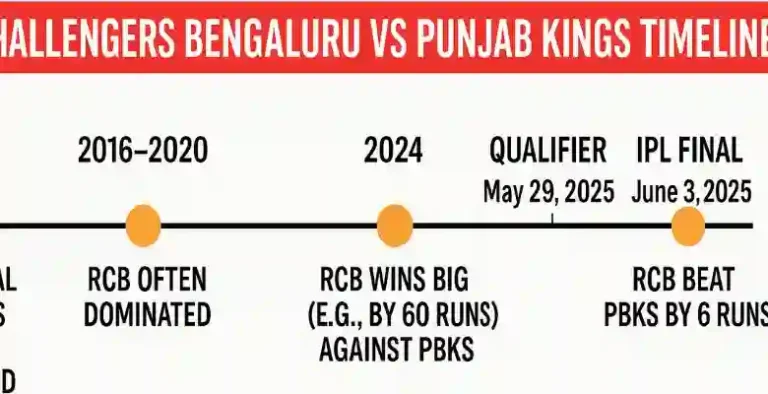
Hanwha vs Kia
In the landscape of South Korean professional baseball, rivalries create excitement, passion, and unforgettable stories. One of the most talked-about comparisons is hanwha vs kia, a rivalry that spans decades in the Korea Baseball Organization (KBO). Both the Hanwha Eagles and the Kia Tigers carry rich histories, unique fan cultures, and distinct paths to success. By analyzing their origins, achievements, strategies, and current trajectories, we can better understand why this rivalry continues to capture the hearts of KBO fans.
Origins of Hanwha Eagles
The Hanwha Eagles were founded in 1985 under the name Binggrae Eagles before adopting the Hanwha identity in 1994. Based in Daejeon, they quickly developed a loyal fan base. Known for their persistence and underdog spirit, the Eagles became a symbol of hope for baseball fans outside the metropolitan area. Their home stadium, Hanwha Life Eagles Park, provides a vibrant atmosphere where fans showcase immense loyalty despite the team’s ups and downs.
Origins of Kia Tigers
The Kia Tigers, on the other hand, trace their roots back to 1982 as the Haitai Tigers. Located in Gwangju, they were later acquired by Kia Motors in 2001. With a history steeped in dominance, the Tigers are considered the most successful team in KBO history. Their record-setting championship wins cemented their place as a dynasty, and the team became a model for excellence in Korean baseball.
Championship Success: Kia’s Legacy
When comparing hanwha vs kia, one of the clearest differences lies in championship success. The Kia Tigers boast 11 Korean Series championships, the most of any KBO team. This legacy includes legendary eras led by star players such as Sun Dong-yeol and Lee Jong-beom. Their consistent ability to nurture talent and maintain winning streaks has kept them among the elite franchises in Korean baseball.
Hanwha’s Championship Story
In contrast, the Hanwha Eagles have only one Korean Series title, won in 1999. That victory, however, was particularly memorable because it broke the dominance of other teams and showed the Eagles’ capacity to rise to the occasion. Players like Song Jin-woo and Jung Min-cheul became household names during that historic run. Despite not having multiple championships, Hanwha’s lone title remains a cherished moment in KBO history.
Fan Culture and Regional Identity
The hanwha vs kia rivalry is not just about wins and losses; it also reflects the pride of regional communities. Hanwha Eagles fans from Daejeon and surrounding regions are known for their unwavering support, often filling the stands regardless of the team’s standing. Meanwhile, Kia Tigers fans from Jeolla Province have long prided themselves on backing the most successful team in the league. These contrasting identities create an electric atmosphere whenever the two teams face off.
Playing Style and Strategy
Historically, Kia has been known for strong pitching and disciplined batting, traits that allowed them to dominate during their golden years. The Tigers often emphasized player development, creating a pipeline of talent that maintained their edge. Hanwha, on the other hand, leaned on grit and resilience, often relying on clutch performances rather than long-term consistency. This difference in philosophy adds a fascinating layer to hanwha vs kia matchups.
Star Players of Kia Tigers
Over the years, the Tigers have produced some of the greatest stars in KBO. Sun Dong-yeol, one of the most dominant pitchers in league history, is often mentioned as a symbol of the team’s excellence. Lee Jong-beom, nicknamed the “Son of the Wind,” brought speed and excitement to Kia’s lineup. More recently, players like Yang Hyeon-jong have carried the torch, keeping Kia competitive in the modern era.
Star Players of Hanwha Eagles
Hanwha also produced its share of notable stars. Song Jin-woo, who holds the KBO record for most career wins, became a legendary figure associated with the Eagles’ perseverance. Kim Tae-kyun, a consistent hitter, carried the team’s offense for many years. Ryu Hyun-jin, who later achieved success in Major League Baseball, first made his mark with Hanwha, adding international recognition to the team’s profile.
Memorable Matchups
Whenever hanwha vs kia games are played, fans anticipate memorable moments. From dramatic walk-off hits to intense pitching duels, the rivalry has produced countless highlights. One iconic series occurred in the late 1990s, when Hanwha upset Kia’s dominance, culminating in their 1999 championship. More recently, tight games in the regular season have continued to remind fans of the intensity embedded in this rivalry.
Managerial Approaches
Management style also differentiates the two teams. Kia often relies on structured long-term planning and heavy investment in player development. Hanwha, in contrast, has undergone frequent coaching changes, reflecting a search for stability. These managerial decisions directly influence the outcome of hanwha vs kia encounters, as consistency often favors Kia while unpredictability sometimes gives Hanwha surprising victories.
Challenges for Hanwha Eagles
Despite their passionate fan base, Hanwha faces challenges such as inconsistency and rebuilding phases. The team often struggles with pitching depth and offensive firepower compared to other top-tier clubs. Rebuilding cycles have led to frustration, but they also keep fans hopeful for a brighter future. Overcoming these challenges is crucial if Hanwha hopes to balance the hanwha vs kia rivalry.
Challenges for Kia Tigers
Although Kia is historically dominant, they too face modern challenges. Maintaining their winning tradition in an increasingly competitive KBO is not easy. Injuries, roster turnover, and the pressure of living up to their championship legacy weigh heavily on the team. Younger rivals and shifting baseball dynamics force Kia to continuously adapt to stay relevant.
Economic Impact of the Rivalry
Baseball in South Korea is not just a sport; it is also a major business. The hanwha vs kia rivalry contributes significantly to ticket sales, merchandise, and broadcast ratings. Games between these two teams often draw larger crowds, boosting revenue for both franchises. Sponsorships and regional pride further elevate the financial importance of this rivalry.
Cultural Significance
Beyond economics, this rivalry also has cultural implications. It represents the contrast between a team rooted in dominance (Kia) and one celebrated for resilience (Hanwha). This dynamic creates a narrative of tradition versus aspiration. For many fans, supporting their team in the hanwha vs kia rivalry goes beyond baseball—it becomes a way to express identity and loyalty.
Media and Popularity
Korean sports media often highlight the rivalry as a marquee matchup. Television broadcasts frequently emphasize the history and drama behind hanwha vs kia, ensuring fans across the nation remain engaged. Social media has further amplified the rivalry, with younger fans creating online communities dedicated to discussing games, players, and future prospects.
Recent Developments
In recent seasons, both Hanwha and Kia have been rebuilding their rosters. Hanwha has invested heavily in developing young talent, hoping to create a new golden era. Kia continues to balance veterans with promising rookies to maintain competitiveness. The rivalry remains strong, with each matchup seen as a test of progress for both franchises.
Future Outlook
Looking ahead, the future of hanwha vs kia promises excitement. If Hanwha’s rebuilding efforts succeed, the rivalry could evolve into a more balanced competition. Kia, meanwhile, aims to preserve its legacy by continuing to win championships. As both teams adapt to modern baseball trends, fans can expect the rivalry to remain one of the most compelling stories in the KBO.
Conclusion hanwha vs kia
The story of hanwha vs kia is not simply a tale of victories and defeats; it is a narrative of resilience versus dominance, underdog spirit versus dynasty tradition. Hanwha Eagles represent persistence and the hope of future triumphs, while Kia Tigers symbolize excellence and a history of unparalleled success. Together, they create one of the richest rivalries in South Korean baseball, keeping fans invested year after year. Whether it is the roar of the Eagles’ faithful or the pride of the Tigers’ dynasty, this rivalry ensures that the KBO continues to thrive on passion, competition, and unforgettable memories.






